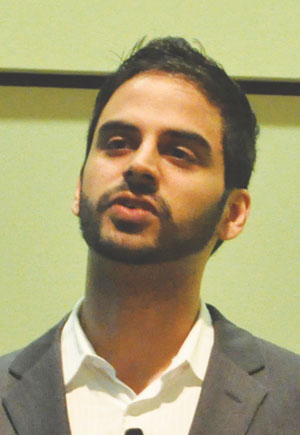If you’re not tracking your billable hours as you go, technology entrepreneur John Kuntz is certain you’re not getting it right.

Kuntz is a co-founder of Bellefield Systems LLC, the company behind an application called iTimeKeep.
Although technology has significantly altered the way lawyers communicate, what hasn’t changed is the way they keep track of their time, said Kuntz, who spoke about the state of mobile technologies in the legal profession at the Association of Legal Administrators annual conference in Toronto on May 21.
Kuntz cited a survey that found less than 10 per cent of U.S. lawyers use mobile technologies to track their time.
Many lawyers still sit down at the end of the month to reconstruct the time they spent on various tasks, he noted.
“There’s no way you can remember a phone call at the dinner table from a client three weeks ago,” Kuntz told attendants.
“It’s costing the firm thousands of dollars, if not millions of dollars, in a lot of cases.”
If law firms are trying to get lawyers to adopt an application, the first thing to look for is simplicity, according to Kuntz, who noted keeping time is a pet peeve for many lawyers.
“If we have to think about it, we don’t want to use it,” he said. “If [lawyers] have to think, you have failed.”
People often say lawyers are averse to technology but, said Kuntz, “it’s not that they are technology averse; they just don’t want technology that sucks.”
Kuntz said 99 per cent of lawyers at large law firms use smartphones, whereas the number is 85 per cent for sole practitioners. More lawyers are using Apple Inc.’s operating system as the BlackBerry platform plummets in popularity, he added. According to Bellefield Systems, 22 per cent of lawyers use Android; 16 per cent are still on BlackBerry; and 62 per cent use Apple.
Harpaul Sambhi, chief executive officer of Toronto-based Careerify, said law firms are often reluctant to promote social media use for fear of compromising their reputation.
“You guys are very risk averse as an industry,” he told an audience of lawyers and legal administrators. But “moving forward is a must,” he added.
“Our technology moves so fast right now, you need to be on top of it or be left behind.”
In fact, Sambhi predicts the legal profession may soon adopt a wristband security tool that functions as a password using a person’s cardiac rhythm.
The technology, called Nymi, would replace vulnerable passwords and personal identification numbers.

 Kuntz is a co-founder of Bellefield Systems LLC, the company behind an application called iTimeKeep.
Kuntz is a co-founder of Bellefield Systems LLC, the company behind an application called iTimeKeep.